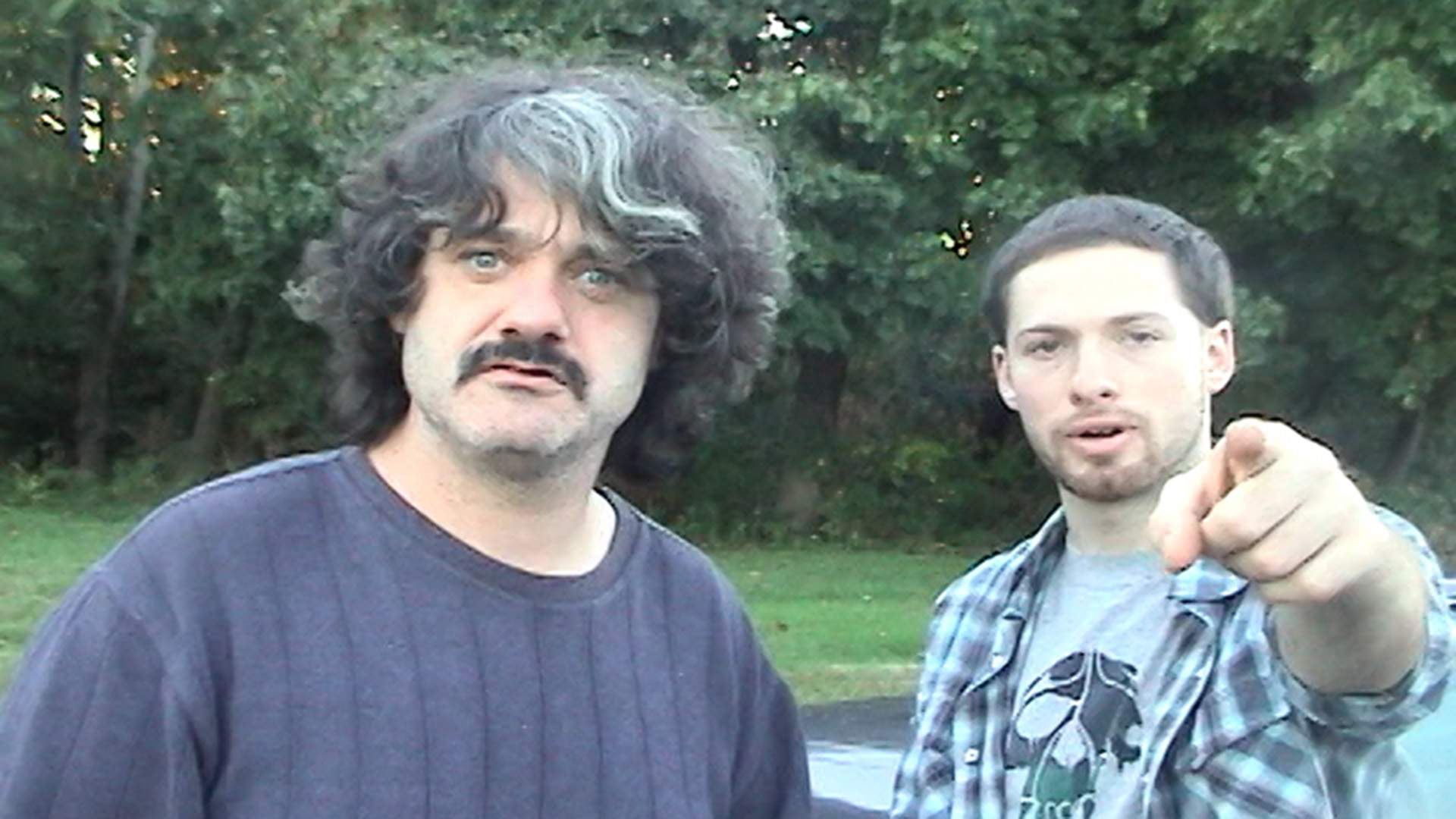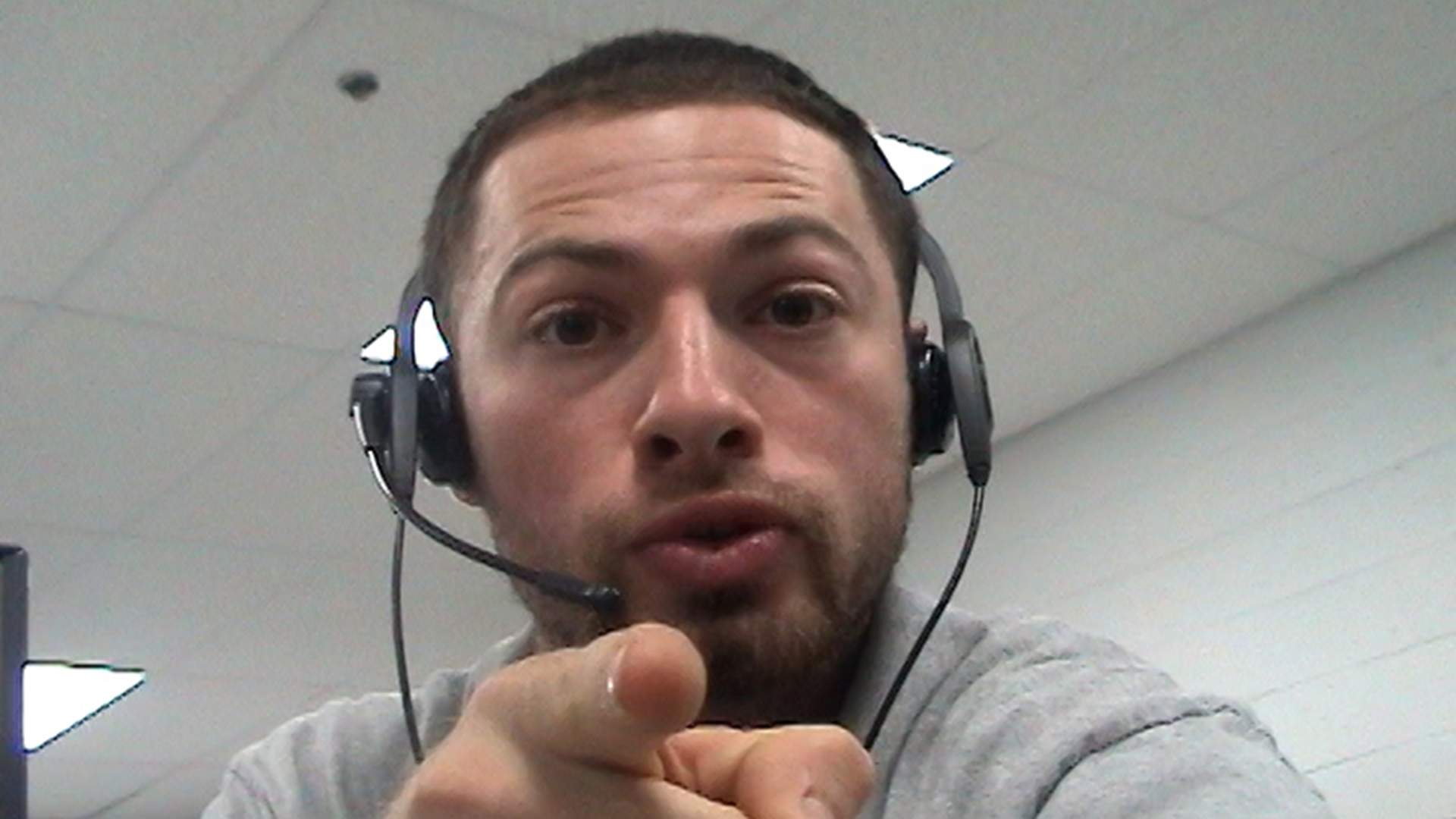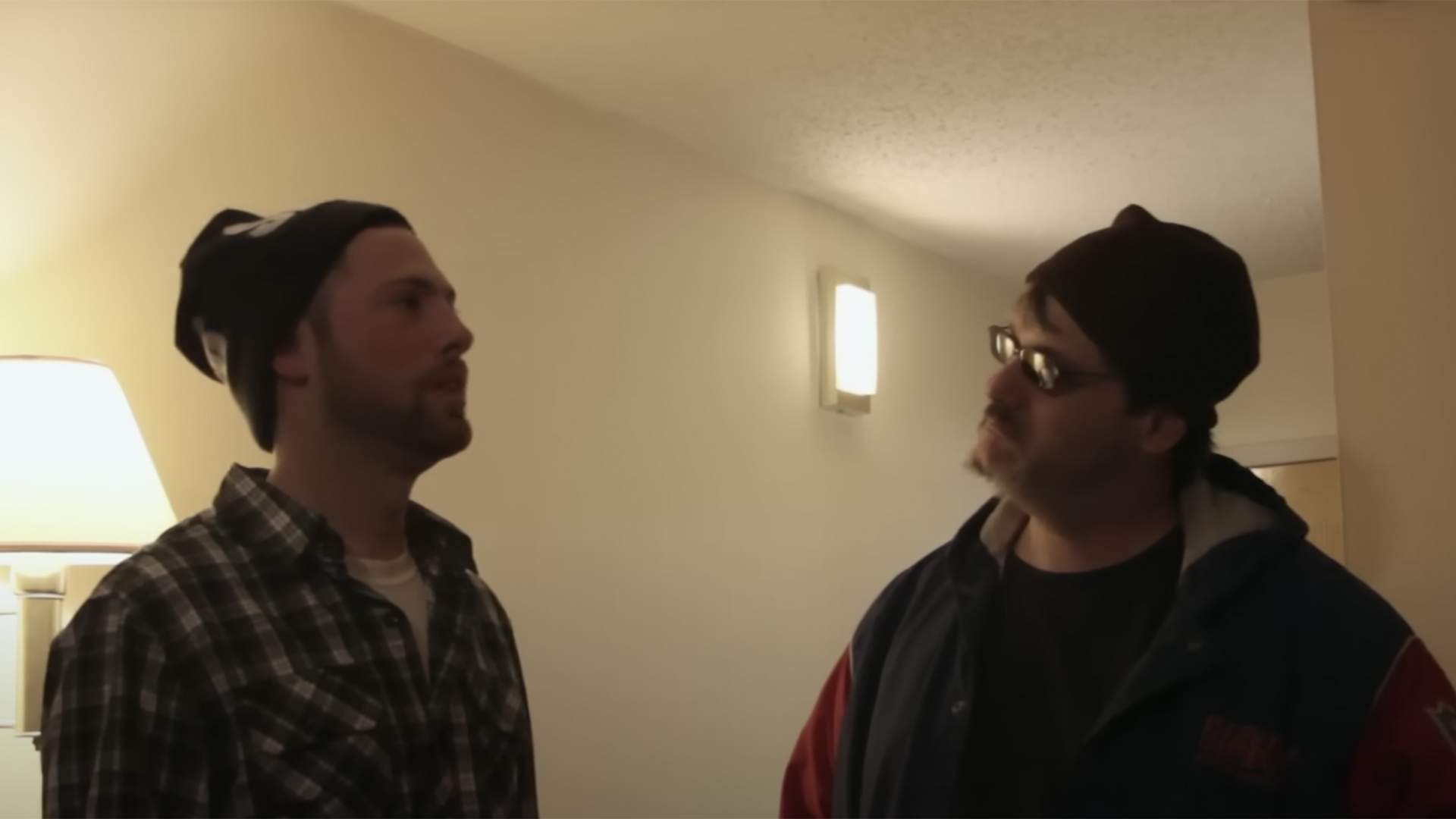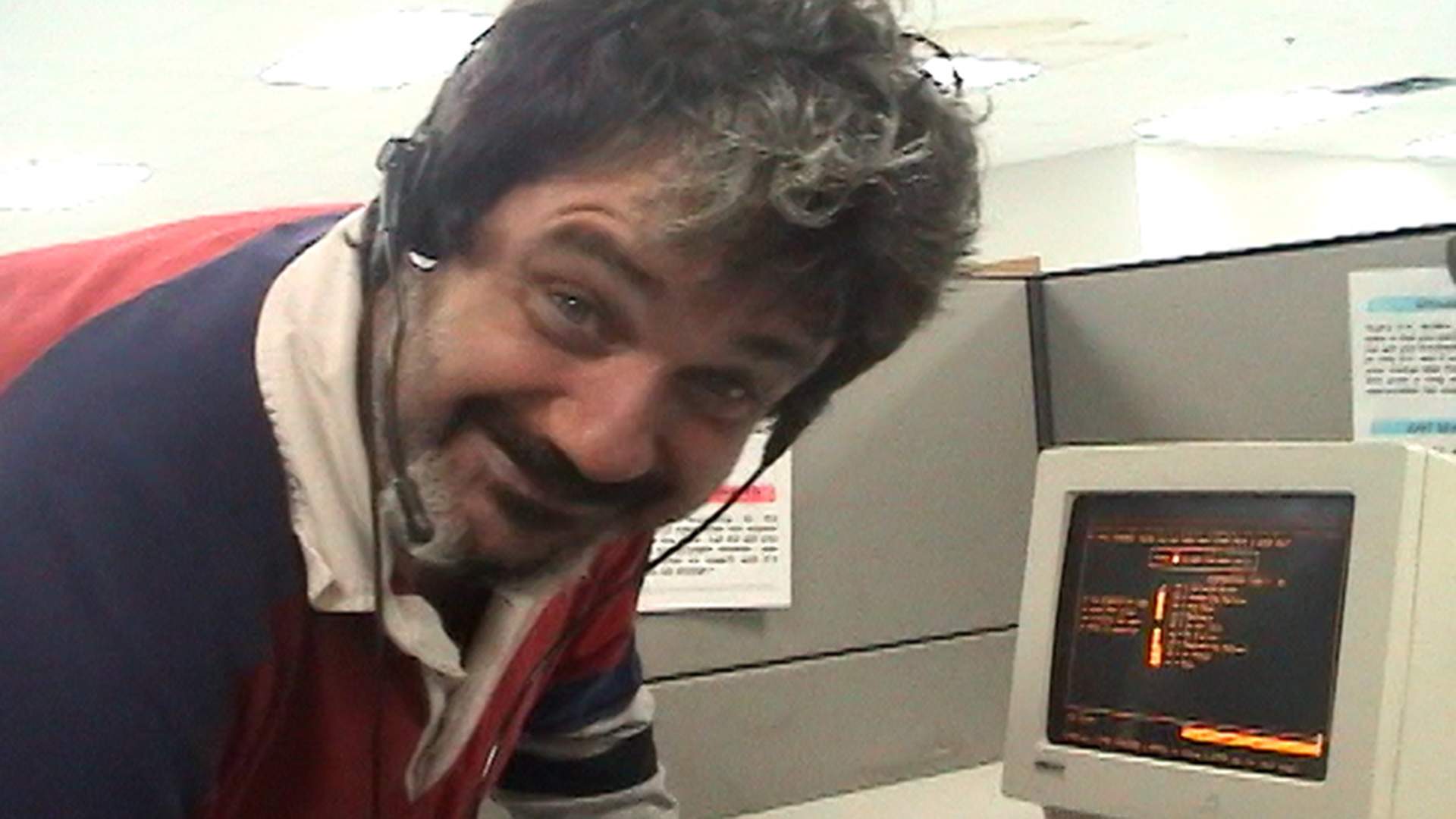HBO's Stunning New Scammer Docuseries 'Telemarketers' Is Your Latest True-Crime Obsession
The Safdie brothers executive produce this has-to-be-seen-to-be-believed three-parter about the shoddiest and shadiest of call-centre operations.
No one likes it when their phone rings from an unknown number, whether "no caller ID" or digits that you don't recognise flash up on your mobile's screen. Telemarketers isn't going to change that response. It won't dampen the collective ire that the world holds towards the pushy people on the other end of the line, either. HBO's thrilling three-part docuseries doesn't just reinforce what viewers already feel about the nuisance industry that thinks it can interrupt your day and life with a spiel that no one wants, and impact your bank balance in the process. In addition, it spins a true tale that demonstrates why a deep-seated dislike of telemarketing is so well-founded, and also why cold-calling operations can be so insidious. This true-crime story about the New Jersey-based Civic Development Group surpasses even the most call centre-despising audience member's low expectations of the field — and it's gripping, can't-look-away, has-to-be-seen-to-be-believed stuff.
"Every other telemarketer who drives you crazy in the whole world is because of CDG," advises one of the series' interviewees. That might seem like a big claim, but co-directors Sam Lipman-Stern (Live From the Streets) and Adam Bhala Lough (The New Radical) step through its truth. The former knows the outfit's approach from experience, working there for seven years from the age of 14 after dropping out of high school, while the latter is the filmmaker cousin he wasn't aware of. Lipman-Stern is Telemarketers' on-screen guiding hand, too, but his ex-colleague Patrick J Pespas is its heart and soul. As seen early — with the show streaming its trio of chapters weekly via Binge since Monday, August 14 — Pespas is called a "telemarketing legend". Although he's happy snorting heroin on-camera in 2000s-era footage, he's switched on to CDG's shonkiness; more than that, he's determined to expose it even if it takes two decades.

When Lipman-Stern began earning $10 an hour convincing ordinary Americans to donate to charities represented by CDG, he found himself at a place where anyone could get hired with few questions asked. The only requirement: bringing in funds while hitting the phone. As long as the company's employees kept making money, anything went. Those workers are a motley crew of vulnerable misfits in Lipman-Stern's low-res fly-on-the-wall footage, spanning not just dropouts and addicts but also ex-cons recruited directly from halfway houses and folks who didn't fit the usual nine-to-five grind. And their work environment? It "was like you was just going to a big-ass cookout every fucking day," one past staff member notes. Drinking, drugs, sex, nodding off on the phone, getting tattoos in the office, baby turtles crawling over keyboards, general seediness and raucousness that even telemarketing sitcom Workaholics didn't dream up: that was all a part of cashing a CDG cheque, as Lipman-Stern captured at the time, then uploaded to YouTube.
Telemarketers' main pair and their boiler-room colleagues were paid to ring their way through the organisation's sales lists, rustling up financial support for police officers, their widows, veterans, firemen, dying children and cancer survivors. When it's the cops they're touting — typically under the Fraternal Order of Police, which is akin to a law-enforcement union — they also send out stickers emblazoned with the particularl lodge's logo. It usually goes unspoken, but those decals come with shifty promise: if you display them on your car, house or shop because you've slung some funds towards the police, you might get favourable treatment if an officer ever has cause to cross your path. Yes, that's dodgy. If only it was the most dubious aspect of CDG's gambit.

Everywhere that Lipman-Stern and Pespas look, this tale gets worse. It's no wonder that Uncut Gems and Good Time filmmakers Benny and Josh Safdie are among Telemarketers' executive producers, plus Eastbound & Down's Danny McBride, Jody Hill and David Gordon Green. Barely giving any of the money raised to any of the charities represented? Tick. Using underhanded and forceful tactics, flat-out lying and adopting voices resembling a "cartoon caricature of police officer", all to con people into donating? Check there, too. Unsurprisingly attracting legal attention across several states, and multiple levels of government, yet managing to keep operating? Tick again. Slippery founders — two sets of brothers, one of which includes the member of a Christian rock band — who aren't fussed about CDG's ongoing legal troubles? Check once more. Turning nonprofit fundraising into a complete sham? Keep on ticking.
Constantly devolving, whether by letting fear-inducing convicted murderers loose on the phones, using artificial intelligence to keep calls going without needing staff or capitalising upon America's increasingly polarised political landscape? That's all part of this story as well. Making for jaw-on-the-floor viewing, Telemarketers is a wild portrait of greed, exploitation and corruption — and while screens aren't short of those of late, this isn't a Succession or Squid Game-style eat-the-rich effort. There's nothing luxurious or stylish here. All that's on display is pure predatory behaviour from CDG's owners and their cronies towards everyone below them, employees and folks picking up the phone alike alike. Lipman-Stern and Pespas are as much scam victims as the people they called. But, when a disguised player in the industry notes that "it's not the telemarketers you should be worried about", Telemarketers gets even more sinister.

When the strikes end, expect Hollywood to pounce on a dramatised remake. The Bear's Ebon Moss-Bachrach could easily slip into Lipman-Stern's shoes, and Saturday Night Live and Mr Mayor's Bobby Moynihan into Pespas'. Fantasy casting aside, any future retelling of CDG's exploits needs Lipman-Stern and Pespas at its centre — because Telemarketers wouldn't be what it is without them, or even exist. As much as HBO's series is a takedown of a horrific swindle, it's also an ode to guerrilla journalism by a couple of average guys fighting back, and a character study of the pair as well. As the show jumps across 20 years, it surveys who Lipman-Stern and Pespas are, what changes in their lives, their evolving friendship, their commitment to exposing their old workplace and why they took up this battle. It also doesn't shy away from the fact that they're plucky amateurs doing what they feel compelled to.
The Safdies were approached to direct Telemarketers, only to glean what audiences can now see: that authenticity couldn't be more crucial. When 2022 became a banner year for true-crime deceptions on-screen, unravelling real-life stories through Inventing Anna, The Dropout and more, polish reigned supreme. Getting an inside view from everyday sleuths taking on the crooks who gave them a gig, as chronicled through rough-around-the-edges footage and scrappy chats — that's a raw, like-you're-there experience, and it's both powerful and electrifying. So too is Lipman-Stern and Pespas' transformation as they get immersed in their investigation over the years. Initially, Lipman-Stern just wants to film office pranks, while the ever-earnest Pespas has his own personal tussles. Before our eyes, they become the tenacious duo revealing a billion-dollar fraud and bringing this stunning whistleblower documentary to the world.
Check out the trailer for Telemarketers below:
Telemarketers streams via Binge from Monday, August 14.





